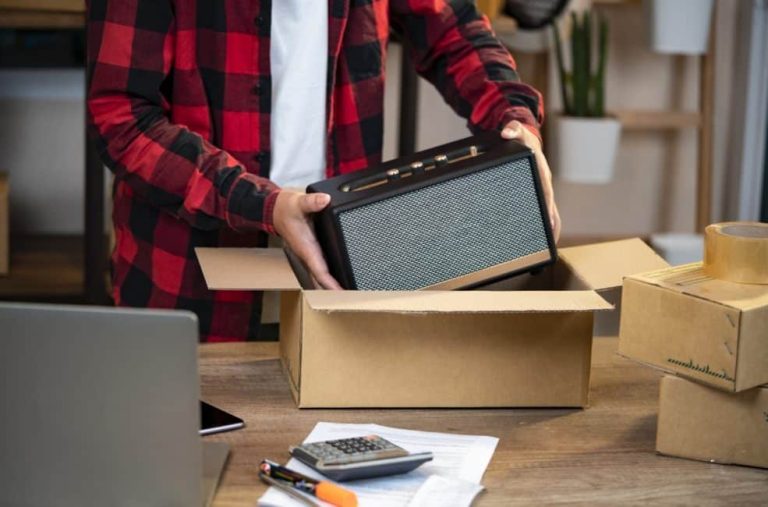Deciding to get a new vehicle can be a difficult decision on its own. But then you have to consider whether to buy or lease. Leasing definitely has some advantages. Lower monthly payments, no down payment, little to no repair costs. One possible negative to leasing a car, however, is that it depends on your credit score. Can you lease or buy a car with bad credit? Keep reading to learn your options.
What’s the difference between leasing and buying a car?
There are many differences between leasing and buying a vehicle.
- Ownership: Buying a car usually means taking out an auto loan and paying monthly for it. Once the loan is paid off, the car is yours. Leasing a car means you’re renting it from the car dealership for a period of time.
- Money up front: When you buy a car, you usually have to pay part of the cost up front as a down payment. When you lease, you can pay much less up front.
- Monthly payments: Usually when you lease a car, you pay less per month than if you buy a car using an auto loan.
- Term/length: Most people lease cars for about two years. For that time, they pay the dealership every month to lease/rent the car, plus fees. Buying a car using an auto loan usually means longer terms. Most car loans are between three and five years. That means you’re making more monthly payments.
- Selling/trading: When you buy a car, you can trade it in or sell it whenever you’d like. When you lease a car, you just drive it back to the dealership and give them the keys when the lease is up.
- Wear and tear: If you buy a car, you can do pretty much whatever you want with it. But it’s your responsibility to pay for any damage. When you lease a car, the dealer is expecting the car to come back in good shape. If not, the dealer will charge you extra.
- Mileage limits: Buying a car offers the freedom to drive as much as you want. When you lease a car, you must stay below a certain number of miles driven. If you go over, you will have to pay the dealer for the extra miles.
There is no right or wrong when deciding whether to buy or lease a car. Both options have their advantages and disadvantages. If you have bad credit, those advantages and disadvantages are very different when you consider buying vs. leasing.
How does bad credit affect leasing and buying?
Having bad credit makes buying–or leasing–a vehicle more difficult. When a borrower has a low credit score, lenders do not feel comfortable giving money to them. That’s because the low credit score shows that the borrower has a history of not paying back their loan on time. If you have a low credit score, buying a car might be easier for you. Why? Because getting an auto loan–even with bad credit–is usually easier than qualifying for a lease. The bad news? You will have higher interest rates, which means you’ll pay more every month.
Pros and cons of leasing a car
If you have a low credit score, it is probably going to be more difficult to get approved for a lease. But it’s not impossible. If you are looking to lease a car, here are some pros and cons.
Pros of leasing a car
- Lower monthly payments: Leasing a car costs less than buying a car, so your monthly payments will be lower.
- Better car for the money: Because your monthly payments are lower, you may be able to affordably lease a better car.
- Less money to pay up front: You don’t need to make a large down payment up front when leasing a car.
- Little to no repair costs: Lease terms are usually very short (one or two years). Because they are, most repairs are covered by the car’s original manufacturer’s warranty. Some maintenance costs–like oil changes–may even be covered. Make sure you check with the dealership.
- New vehicle every couple of years: When your lease expires after one or two years, you can just take out a lease on another car. No worrying about reselling or trading in.
The option of buying the car: Love the car you’re leasing? You have the option of buying it once the lease ends..
Cons of leasing a car
- No ownership: When you lease a car, you’re renting it from a dealer. That means your monthly payments simply allow you to drive the car for a period of time. When you own, you’re building equity in the vehicle. This allows you to sell or trade it and get some value from your car.
- Limits to mileage: When you sign a lease, you agree not to drive the car over a certain amount while you have the car. Usually the mileage limit is 15,000. If you go over that amount, the dealer will charge you a fee. And that can get expensive.
- What you see is what you get: Because you don’t own the car, you can’t make any changes to the vehicle. This includes new paint color, upgraded stereo systems, etc. If you make any changes, the dealer will charge you extra.
- More expensive car insurance: Leasing a car usually means your car insurance premiums go up. That’s because you are required to purchase full coverage so there is enough money available to repair the car if you get into an accident.
Pros and cons of buying a car
As we mentioned, it may be easier for you to get an auto loan to buy a car if you have bad credit. And, just like leasing, there are good things and bad things about buying a car.
Pros of buying a car
- You own it: When you buy a car, even if you take out a loan, it’s yours. That means every monthly payment you make, you’re building equity–or value. So if you want to sell your car or trade it in at some point, you can use the value of the car to your advantage.
- Unlimited driving: Unlike leasing a vehicle, buying a car allows you to drive as many miles as you want with no extra fees.
- Make it yours: Want to add speakers that shake the neighborhood when you drive by? Or add racing stripes to the sides of the car? Go for it!
- No wear and tear fees: Most cars suffer some kind of wear and tear just from driving it. Some people like to beat up their cars with off-road driving. The good thing about buying a car is that you don’t have to pay a dealer extra for the wear and tear.
Cons of buying a car
- Higher monthly payments: It usually costs more per month to buy a car than to lease it. If you can’t afford to make a down payment up front, those monthly payments get even higher.
- More cash needed up front: To lower your monthly payments even a little bit, you have to give the dealer a fair amount of cash up front. This is usually at least a few thousand dollars.
- Repairs are your responsibility: If you buy a car, you’ll probably still own it once the original warranty expires. That means you’re responsible for paying for any repairs. And depending on what the problem is, those costs can be very high.
- Depreciation: When you buy a car, it loses value–depreciates–as soon as you leave the dealership. So, while buying a car allows you to trade or sell it, you won’t get nearly as much as what you paid for it.
Alternatives to leasing a car with bad credit
If you have bad credit and are having trouble getting approved for a lease, there are some options.
Car-sharing services
Car sharing is a type of rental, usually for short-term use. People often use car-sharing services to rent a car for hours or maybe a few days. Car sharing is more convenient than using a traditional car rental company for a couple of reasons. One, it allows people who don’t own a car to access one at any time of day. Two, if you live in an area with a lot of people (like a city), there’s probably a car you can use within walking distance. Just Google “car-sharing services near me” to find one. And car sharing is typically cheaper than renting.
Lease transfers
A car lease transfer (or swap) is when a current auto lease is transferred from one driver to another. The new driver then takes over payment of the lease. This is a good option if a family member or friend wants out of their lease–you can then take it and continue the payments if you’re approved for the lease.
Discuss with dealership financial department
All car dealerships have a finance department that helps people figure out their payments–whether you buy or lease. Many dealerships even advertise how they can help those with bad credit or no credit get a car, such as a special loan program for a used car. Car dealerships want your business, even if you have a low credit score. They’re often willing to help you so they don’t lose your business.
Choosing the right option
It is possible to buy or lease a car with bad credit. But the best thing to do before deciding on how to pay for your new vehicle is to improve your credit score. How? By establishing trust. Take out a loan and make your payments on time. Pay your credit card bills on time. Doing this shows you are a trustworthy borrower. And that increases your credit score and opens more doors for you.






